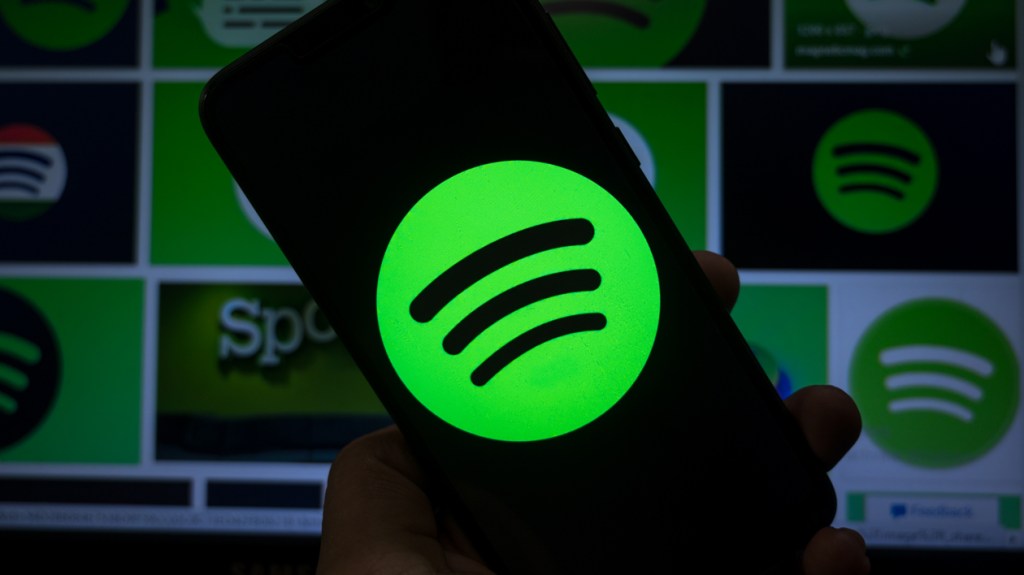Shares in Spotify jumped 17.6% to $310.31 this week after reports that the streaming giant will raise prices again in select markets, as well as news that it named a new chief financial officer, Christian Luiga. former CFO and deputy managing director at European defense and security company. Saab AB.
Spotify's new willingness to raise prices and control costs has breathed new life into its share price after an expensive entry into podcasting caused a recession in 2022. As of Friday (April 5), Spotify shares were up 65, 2% year to date and 134.2% over the past 12 months. Not even Believe, which is up 57.1% in 2024 thanks to competing acquisition interests, has matched Spotify's momentum this year. Sphere Entertainment also gets a boost on Wall Street from U2's inaugural residency at the Las Vegas venue worth $2.3 billion, but its 37.7% gain in 2024 also lags behind Spotify.
For more than a decade, Spotify has kept its subscription prices low and emphasized growing subscribers over profits. However, the market mood has changed in recent years. Once investors were satisfied with growing user numbers, investors now want high performing streaming companies to be profitable as well. Since Spotify announced a price increase on July 24, 2023, the stock price has risen 89.5% and increased the company's market capitalization by about $29 billion to $61.5 billion. The stock price is up 71.7% since Spotify announced it will cut 16% of its workforce on December 4, 2023.
This week, investors reacted to a Bloomberg report that Spotify is raising subscription prices in select markets and will pass another rate hike in the United States later this year. Following the news, Spotify gained 8.2% to $291.77 on Wednesday (April 3). Labels also appeared to benefit: Universal Music Group rose 5.5 percent and Warner Music Group gained 5.8 percent on Wednesday after news of the price hike.
Rather than avoiding price increases in consecutive years, Spotify could have a unique ability to withstand higher prices compared to its peers. Morgan Stanley analysts wrote in an investment note on Thursday (April 4) that music is “broadly underperforming” and the quality of Spotify's product gives it “unique pricing power.” Guggenheim analysts wrote in a report Wednesday that they believe the price hike could mean a “9% revenue impact” in the affected markets.
Additionally, higher prices could help Spotify improve its audiobook business. Spotify now gives subscribers in the United States and some other markets 15 hours of free audiobook streaming per month. Users can also purchase additional listening time and purchase audiobooks to keep. A recent Morgan Stanley survey revealed that Spotify was used by 38% of audiobook listeners, second only to veteran audiobook platform Audible, despite Spotify only launching audiobooks a few months prior to the survey. “Audiobooks appear to be perhaps a larger revenue opportunity than podcasting based on the results of this survey and long-term consumer price points for books,” Morgan Stanley analysts wrote.
The Billboard Global Music Index fell 0.2 percent to 1,748.38, as nine of the index's 20 stocks were winners, 10 were losers and one was unchanged. No company other than Spotify posted double-digit growth, however, and three companies — iHeartMedia, Cumulus Media and Anghami — had double-digit declines.
Stocks have been mixed globally this week. In the United States, the Nasdaq composite fell 0.8% to 16,248.52 and the S&P 500 fell 1.0% to 5,204.34. The UK's FTSE 100 fell 0.5% to 7,911.16. China's Shanghai Composite rose 0.9 percent to 3,069.30. South Korea's KOSPI composite lost 1.2 percent to 2,714.21.
Music streaming company Anghami (NASDAQ: ANGH ) was the week's biggest loser after falling 41.1% — it lost 44.5% on Wednesday alone — after OSN Group, a premium entertainment provider for the Middle East-North Africa region , obtained a percentage of 55.45%. bet. The deal, first announced in November 2023, combines Abu Dhabi's on-demand music streaming service with a paid video-on-demand streaming platform that carries Arabic and Turkish titles and content from Western brands such as HBO, Universal Pictures and Paramount.



